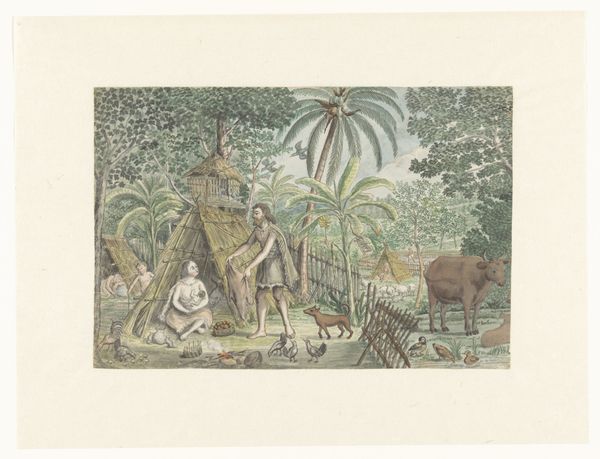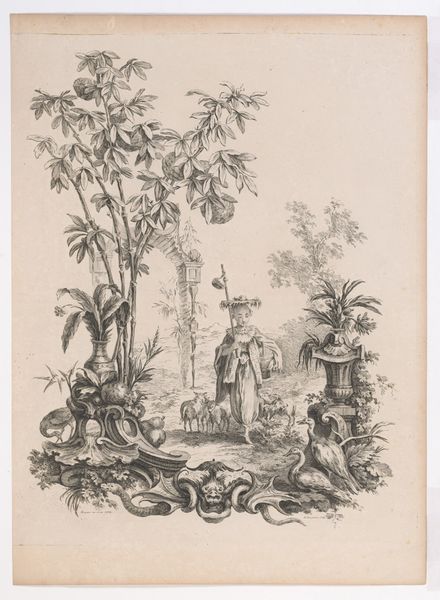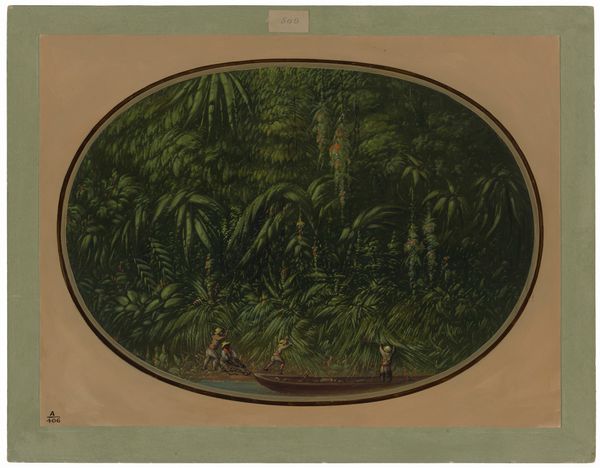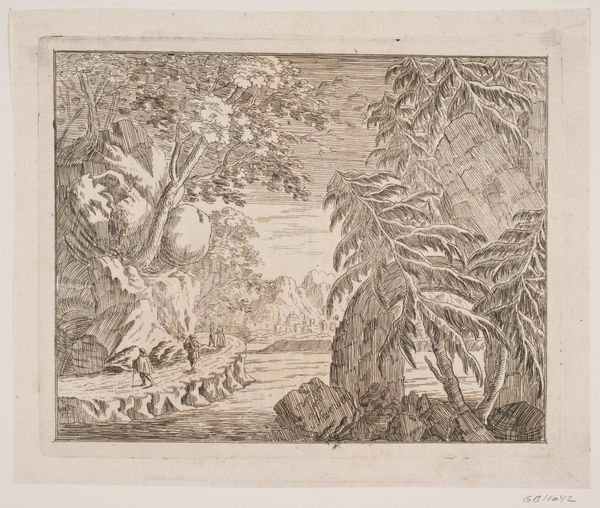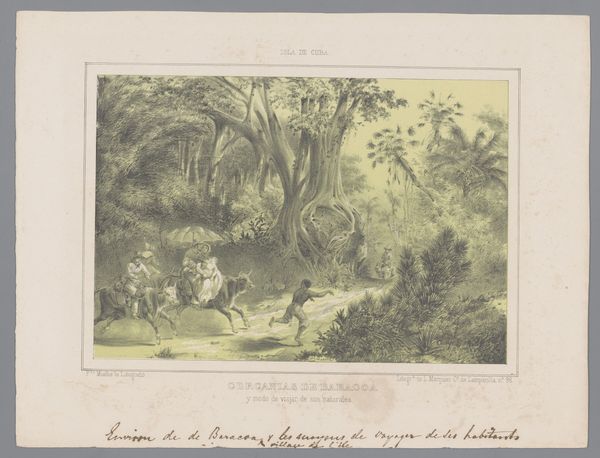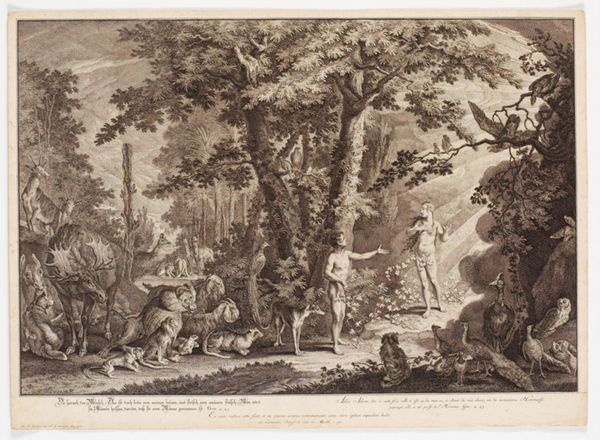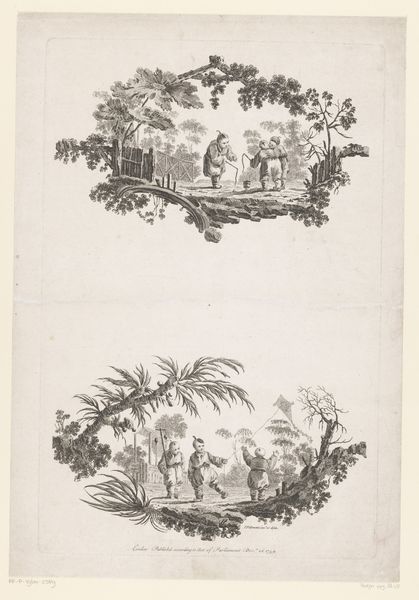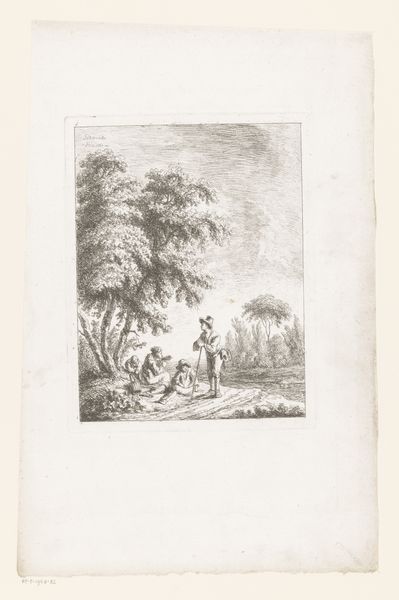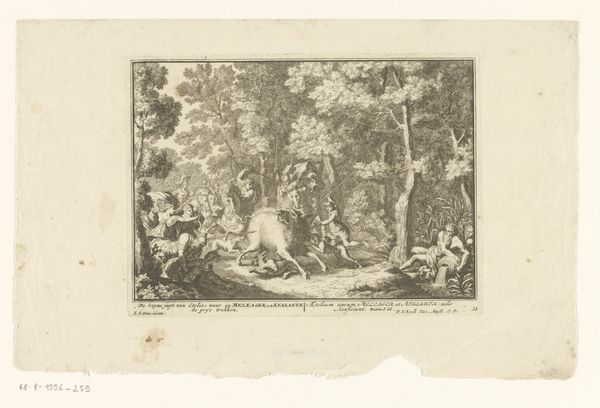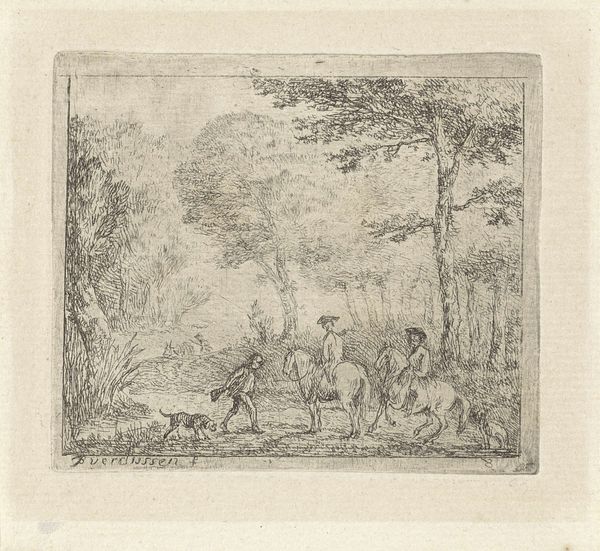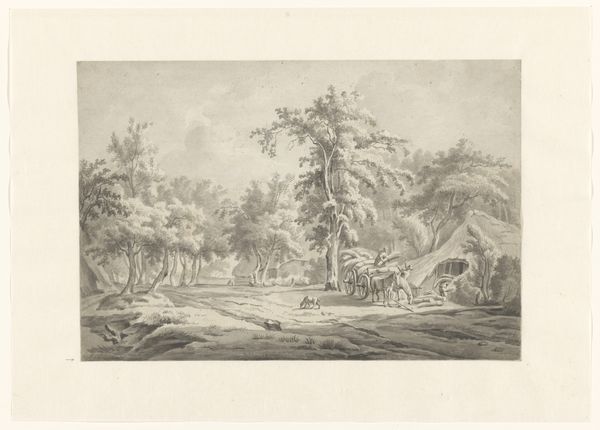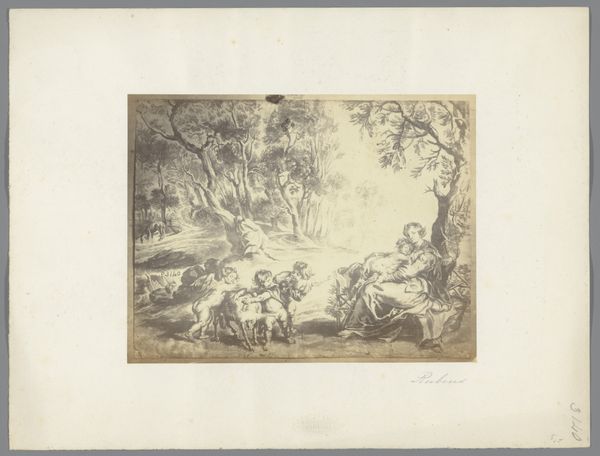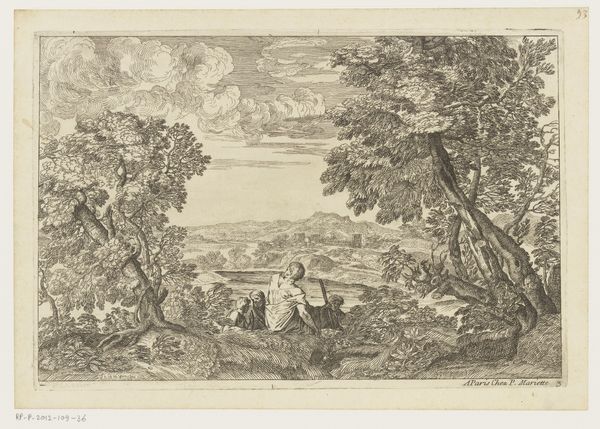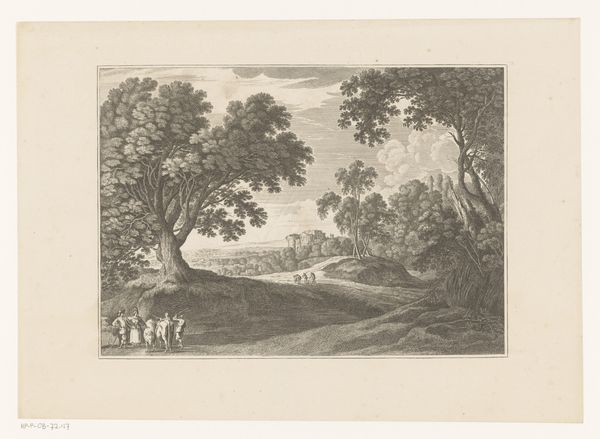
#
vegetal
#
naturalistic theme
#
pastel soft colours
#
joyful generate happy emotion
#
food illustration
#
watercolour bleed
#
watercolour illustration
#
natural palette
#
pale flat background
#
botanical art
Dimensions: height 204 mm, width 298 mm
Copyright: Rijks Museum: Open Domain
Curator: Idyllisch dorpstafereel, or "Idyllic Village Scene," by Jan Brandes, dates to between 1779 and 1785. Editor: It’s certainly idyllic at first glance. A pastel wash gives everything a hazy, dreamlike quality, even if the composition is somewhat... fractured. Curator: It’s part of a larger colonial project. Brandes was documenting life in the Dutch East Indies, aiming to depict the region’s potential for Dutch exploitation, and perhaps inspire a romanticized vision of colonial life. Editor: Ah, so this is propaganda masquerading as art. Looking closer, I see how the artist directs your gaze: a strong diagonal from the left foreground up and to the right creates movement, almost masking how segmented the picture really is. Curator: Consider the placement of figures within the constructed space. The overseer figure to the left points outward, claiming possession of the landscape and directing the labor within it. This illustrates power dynamics in Dutch colonies, subtly but effectively. Editor: And yet the coloring denies any sense of harshness. That muted palette, a limited range of greens, browns, and grays, makes the scene less confronting. The composition almost leans into abstraction. See how those carefully placed, diminutive human figures mirror forms of the landscape? The tree trunks repeat, creating this peculiar rhythm… Curator: Yes, Brandes was consciously creating an illusion of harmony, disguising the disruptions of colonial impact. He used visual language to promote an ideological agenda and suggest an untroubled picture of colonial enterprise. Editor: I'm now struck by how the aesthetic choices downplay any actual feeling or sense of genuine labor. The idyllic quality now feels deeply insidious. Curator: Exactly. Brandes presents us with what he wishes to promote. So looking beneath the pleasant facade is the viewer’s job. Editor: A necessary reminder that beauty, as perceived through formal elements, doesn’t necessarily equate to truth. There’s a tension between aesthetic appeal and underlying meaning that makes this deceptive "Idyllisch dorpstafereel" truly compelling.
Comments
No comments
Be the first to comment and join the conversation on the ultimate creative platform.
